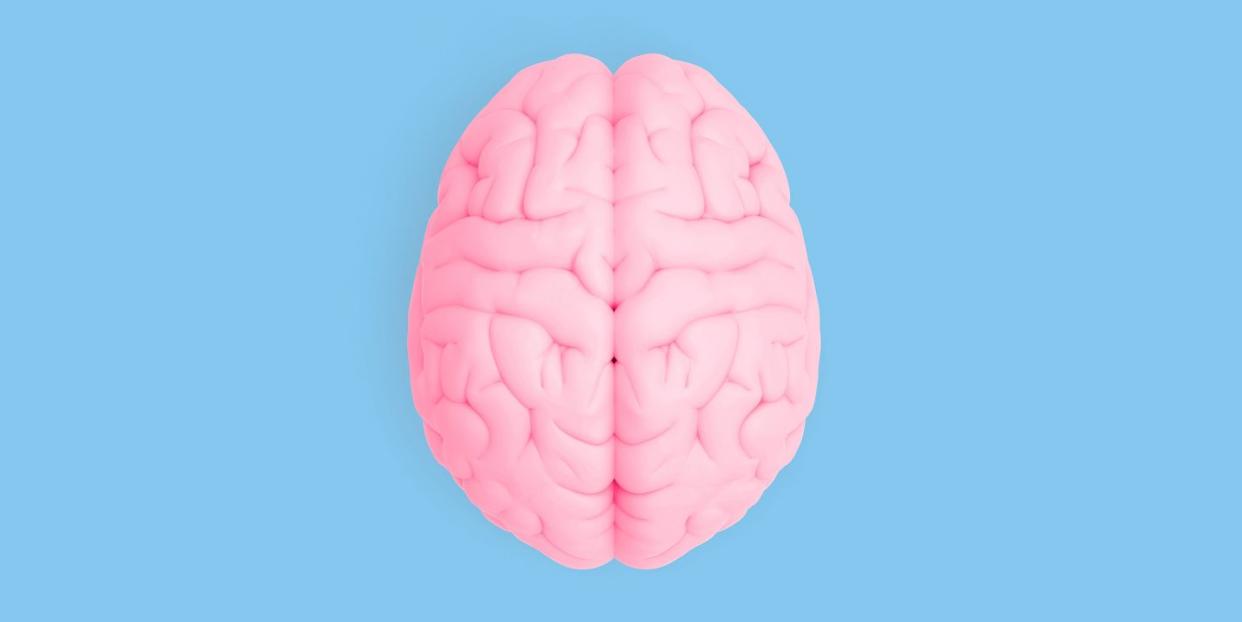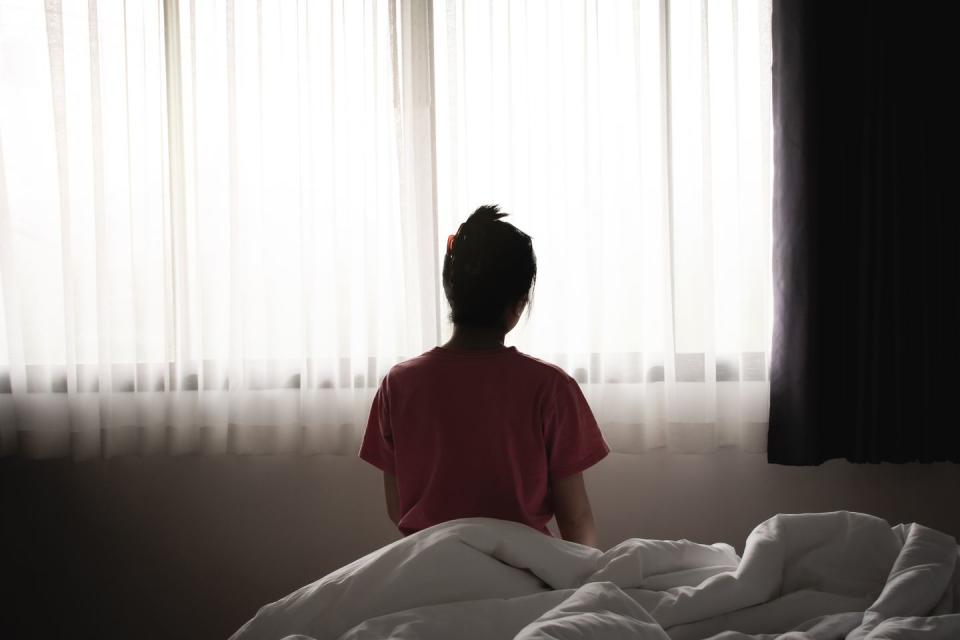The four areas of mental health that people are struggling with most

Let’s say it together: 2020 has been hard.
The COVID-19 pandemic has caused levels of heartache we could never have imagined, with many people getting sick, losing loved ones and facing job insecurity. And even if you were spared the worst of it, being separated from friends, partners and family hasn’t exactly been easy.
In fact, the pandemic has taken such a toll that experts are now warning about an impending psychological “tsunami”. They’re attributing it to an increase in mental health problems coupled with the NHS’s struggle to accommodate the surge in demand for mental health services, and our attempts to “power through” or put on a brave face “because others have it worse”.
“The COVID-19 pandemic has uprooted our lives and messed around with our sanity,” says Samantha Carbon, a UK Council for Psychotherapy (UKCP) psychotherapist. “This battle is yet to be won. We need to take it slow, steady and one day at a time.” If you’ve been feeling lonely or low, you might find some of the following advice helpful. But if you suspect your mental health issues are more serious, contact your GP, or one of the helplines listed in this article.
1. LONELINESS
Understand it
This is a biggie. According to the Mental Health Foundation, one in four people experienced loneliness during lockdown, with one in 10 saying they felt that way before the restrictive measures began.
“If left untreated, loneliness can cause major mental stress, creating a sense of worthlessness, depression, or even suicidal thinking,” says UKCP psychotherapist Yuko Nippoda. “And it isn’t just about being alone – people can feel loneliness while they are with others, too, particularly when they don’t feel good about themselves.”
A lack of sufficient social contact has led to many people feeling isolated, adds Carbon, and that can be a breeding ground for negative thoughts – including past trauma resurfacing. Furthermore, feeling safe with others is fundamental to a meaningful and satisfying life. “We feel lonely when there’s a perceived sense of disconnection, alienation and rejection,” says Carbon. These feelings could happen post-lockdown, too, as meeting in groups may feel odd after the long break. So if you’ve been feeling out of sorts during get-togethers recently, this could be why.
Carbon adds that the ways in which we once sought comfort have changed. “Hugging, touching and shaking hands – which can all bring a sense of assurance – are still off the cards for many.”

Take steps
You’re really not alone. “Acknowledging that you’re far from the only one feeling this way can help,” says Nippoda. “Many others are in the same boat.” If loneliness has left you feeling worthless, tackling these emotions will also make a difference. “Pause and accept that you are not worthless, but are simply having thoughts and feelings as a reaction to your situation,” says Nippoda.
Although you might not be able to hug your loved ones right now, don’t forget to check in on them. Phoning a friend or sending somebody a surprise bunch of flowers can boost your own mood and help you feel connected.
If you often feel as though you have nobody to talk to, feel unable to reach out to those around you or routinely find yourself waiting for people to call or write, you might want to consider contacting your GP or calling a helpline for support.
2. HEALTH ANXIETY
Understand it
While it’s crucial to be alert when it comes to hygiene during a public health crisis, it’s all too easy to start fixating on your health to the point where it’s detrimental. “In particular, people who had health-related appointments postponed or have needed to visit hospital for reasons other than coronavirus have mentioned feeling ‘put aside’,” explains Nippoda. “But health anxiety is not only a concern for those with a pre-existing condition – it’s spread to almost everyone during the COVID-19 crisis.”
Take steps
As well as discussing any underlying health problems and worries with your doctor, Nippoda recommends trying breathing and meditation techniques. “One of my favourite techniques for calming your mind is to inhale through your nose for four seconds, exhale through your mouth for eight seconds, then hold your breath for three seconds, before repeating the cycle for two or three minutes,” she says. Equally, closing your eyes, counting up to 100 and then counting back down again can help you feel more grounded when panic kicks in.
“You could also try a guided meditation,” suggests Nippoda. “Apps such as Calm, Insight Timer and Headspace are great, as are websites such as Free Meditations or
BalanceTime – they have music that can help you to switch your mind off, or you could spend a few minutes imagining yourself out in nature or on a beach.”
If you find you’re really struggling to calm your mind, make an appointment with your doctor and ask them about CBT (cognitive behavioural therapy). Nippoda also adds that symptoms of panic and anxiety attacks – such as heart palpitations, sweating or shaky hands – can occasionally be symptoms of a physical illness, so it’s a good idea to ask your GP to rule anything like this out when you request a therapy referral. You could also seek a therapist directly by visiting Psychotherapy.org.uk.

3. LOW MOOD
Understand it
When the world feels dangerous and scary, as it has done this year, it’s only natural that your mood might change. “It’s normal to experience anxiety, fear, panic, regret, guilt, anger, a sense of loss or despair,” says Nippoda. “The body is processing what has been going on, and it’s important to listen to what it’s telling us. Rather than trying to block low feelings out, work on turning them into something more positive.”
Carbon adds that for many, lockdown also offered a time for self-realisation and analysis – which could have led to big lifestyle changes or the resurfacing of issues that are difficult to deal with. This, in turn, could lead to feeling down.
Take steps
To shift yourself out of a low mood in the short-term, try raising your energy levels and releasing anger or laughter, suggests Nippoda. “Shouting in a safe space when nobody else is around expels anger,” she explains. “Watching a comedy sketch and laughing out loud will trigger feelings of happiness and boost your energy levels.”
Longer term, Carbon says that it’s important to eat a balanced diet, regulate your sleep and make time for self-care and hobbies that give you an outlet for self-expression. Create a schedule to keep on top of all this – it’ll give your subconscious mind a sense of control. As you make these changes, says Carbon, “acknowledge the waves of emotion you encounter and respond with self-compassion, as you would if a friend told you they were feeling that way”. Finally, she adds, watch the company you keep. “Surround yourself with people who will support and motivate you.”
4. GUILT
Understand it
If you’re reluctant to return to “real life” and feel guilty for secretly enjoying some aspects of lockdown, you’re not the only one. “Some people have gained more freedom and a sense of safety due to lockdown, as they feel more comfortable within the boundaries of their home,” says Nippoda. “If your house has become a cocoon for you, you might experience anxiety when you re-enter the outside world and start engaging with some of the activities you did before lockdown, especially as the virus is still a risk.”

Take steps
While some elements of normality have returned, we’re still in a crisis – and, what’s more, everybody’s situation is unique. “We live in an anxiety-provoking world,” notes Nippoda. “Be kind to yourself and find your own pace without comparing yourself to others.”
Nippoda advises taking small steps – for example, try to go out for 15 minutes today, then increase it to 30 minutes tomorrow. Try visiting quieter spots, meeting just one friend at a time, or getting up early to go and watch the sunrise while most people are still asleep.
It’s worth keeping in mind that all the positives gained from lockdown don’t have to just disappear, either – make time for that daily jog, and don’t feel as though you have to suddenly say yes to every social opportunity. After all, if we’ve learned anything from all this, it’s that life’s too short not to be kind to ourselves.
If you or someone you know is struggling with depression or contemplating suicide, call the Samaritans helpline at any time, on 116 123. For more information on where to get mental health support for you or someone you know, call the Mind infoline on 0300 123 3393 or email info@mind.org.uk.
You Might Also Like


